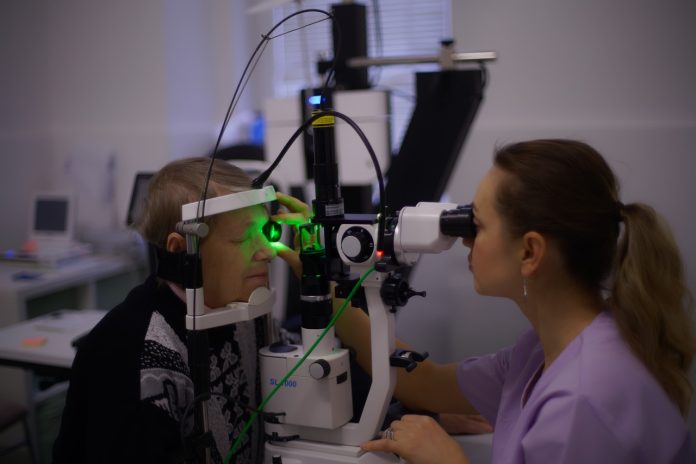Medicare insurance is a great way to protect seniors against the financial burden of medical expenses in retirement. However, Medicare does not cover everything. Its coverage is precise and restricted. If you’re considering signing up for Medicare, you must understand what it covers and doesn’t. If you are enrolled in Medicare, there are some things that you need to know about its coverage limitations. The conditions outlined below will help you understand what Medicare does not cover.
Long-Term Care
Long-term care is often a gray area when discussing Medicare. Medicare works well for short-term health issues and emergencies, but many people find that it runs out of coverage while they still need care for chronic medical problems like arthritis or diabetes. Chronic illnesses often require long-term care, which Medicare falls short of. The program does not cover long-term care. You must find another funding source if you need help with daily living or require nursing care. If you purchase a Medigap plan, long-term care will be covered. If not, you’ll need to find another way to pay for long-term care. The best way to determine if a Medicare plan covers long-term care is to speak to a licensed insurance agent. They can help you understand exactly what each plan covers.
Vision Care
If you have diabetes or other eye conditions, vision coverage is essential. Medicare will cover an eye exam every one to two years. If you have diabetes, you will need to be seen once a year. However, it does not cover vision care. If you need new glasses or your prescription changes, you must pay for them yourself. Medicare will only cover vision as a medical expense if there is another medical condition that requires an eye exam. You can get coverage for an eye exam if you have glaucoma, diabetes, or high blood pressure. If you are enrolled in Medicare, it is essential to understand that it does not cover vision care. If you have any upcoming prescription changes or are due for an eye exam, you should be prepared to pay for it yourself.
Dental Care
Many seniors have dental coverage through their employer or a spouse’s company. Others have dental coverage through Medicaid. Dental coverage is critical in retirement because many seniors have dental issues caused by gum disease or diabetes. Medicare does not cover dental care https://clearmatchmedicare.com/blog/medicare/does-medicare-cover-dental, so if you need a root canal, dental implant, or other dental procedures, you will need to pay for them yourself. If a dental plan covers you, you should keep it. However, you will need to make sure it stays active. Many times, people find that dental premiums increase with age. You must monitor your dental coverage to make sure it stays functional. If you don’t have dental coverage and need dental work done, you might be able to get assistance through state programs.
Hearing Aids and Related Services
Medicare provides hearing aids to seniors who are totally or partially deaf due to a medical condition. However, it does not cover hearing aids for other reasons. If you lose hearing due to normal ageing, or if you’re just not hearing as well as you used to and can’t afford a hearing aid, Medicare will not help you. If you have Medicare and are having trouble hearing, you can get hearing aids from a provider who accepts Medicare. However, you will have to pay for them out of your pocket. You might be able to get a hearing aid provider to give you a payment plan. If you have hearing loss, you should consider buying hearing aids. Not only will they help you hear better, but they can improve your overall health and quality of life.
Prescription Medications
Medicare provides some coverage for prescription medications. Medicare might cover most of the medication cost if you have a medical condition. However, it does not cover everything. You might take daily medications to manage your symptoms if you have a chronic illness. If you have Medicare and take prescription medications, it’s essential to know what is covered and what is not. This way, you won’t be surprised by extra costs when you go to the pharmacy. You need to check your Summary Notice to find out what’s covered. This document provides you with information about your coverage. If you don’t have one, you can ask for a copy from your doctor or the administrator at the office where you sign up for Medicare.
Going Abroad For Treatment
One thing that Medicare does not cover is a treatment abroad. This can be very frustrating, especially when it’s a treatment that you desperately need. For example, if you have a degenerative condition that requires a stem cell transplant and the best place for treatment happens to be in Japan, you will not be covered. If you need treatment abroad, you must pay for it yourself. If you have Medicare, you should be aware of this coverage limitation. You must research before you need a procedure or treatment and ensure you have the resources to pay for it.
As stated, there are a variety of things that Medicare does not cover. Understanding these coverage limitations is essential when signing up for supplemental insurance to protect yourself. Long-term care insurance can help cover the cost of nursing homes and assisted living facilities. A vision care plan can help cover the cost of eyeglasses and eye surgery. A dental insurance plan can help cover the cost of dental procedures such as root canals. These are just a few examples of supplemental insurance plans that you can purchase to protect yourself against the financial burden of medical expenses.



 Bitcoin
Bitcoin  Ethereum
Ethereum  Tether
Tether  XRP
XRP  Solana
Solana  USDC
USDC  Cardano
Cardano  TRON
TRON  Lido Staked Ether
Lido Staked Ether  Avalanche
Avalanche  Toncoin
Toncoin